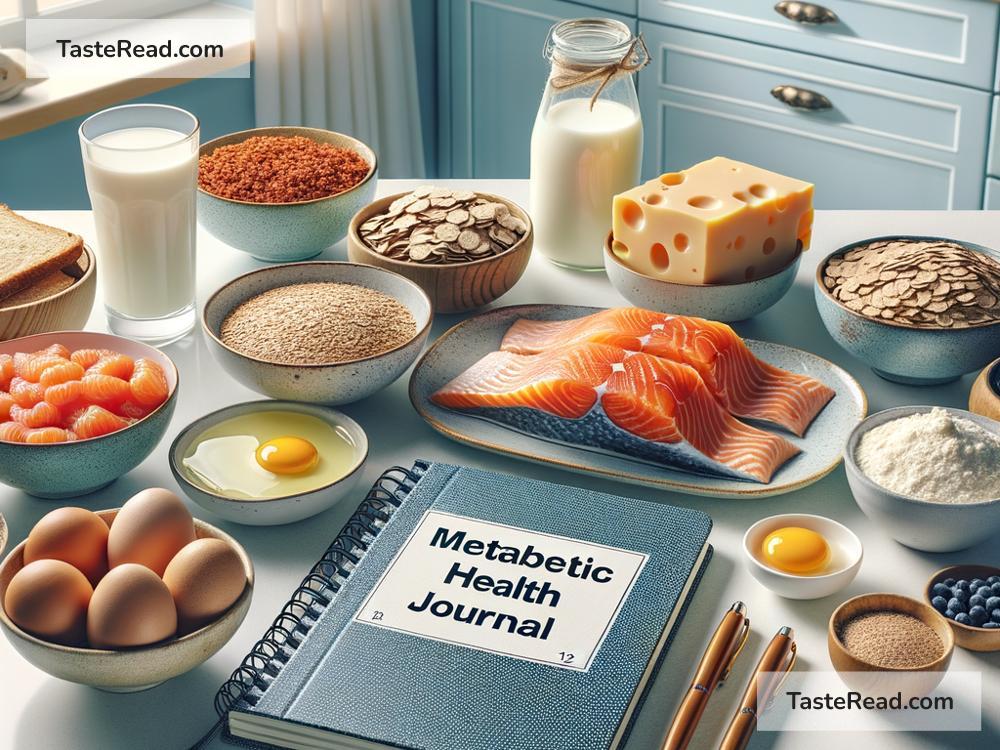The Role of Vitamin B12 in Metabolic Health
When it comes to keeping your body healthy, vitamins play a big role. These tiny nutrients are like helpers that keep everything running smoothly inside your body. One of the key players in this team of helpers is vitamin B12. Although it might not be as famous as vitamin C or calcium, vitamin B12 is a star when it comes to supporting your metabolic health.
Let’s take a closer look at what vitamin B12 does, why it’s so important for your metabolism, and how you can make sure you’re getting enough of it.
What Is Metabolism and Why Does It Matter?
First, let’s talk about metabolism. Metabolism is the process by which your body converts the food you eat into energy. It’s what allows you to move, think, and keep your organs functioning. Metabolism also helps you build new cells, repair tissues, and regulate hormones.
Think of your metabolism like a car engine; it needs fuel to run. In your body, vitamins like B12 are essential for making sure the “engine” runs properly. Without these nutrients, your metabolism can slow down or get out of sync, affecting your overall health.
What Is Vitamin B12?
Vitamin B12 is one of the eight B vitamins that help your body turn food into energy. It’s a water-soluble vitamin, meaning your body doesn’t store it for long and you need to consume it regularly through food or supplements.
This vitamin is especially important because it plays a role in several vital processes:
-
Energy Production: Vitamin B12 helps break down fats and proteins into usable energy for your cells. Without enough B12, your body might struggle to generate the energy it needs.
-
Red Blood Cell Formation: Your body needs B12 to produce healthy red blood cells. These cells carry oxygen throughout your body—oxygen is crucial to keeping your metabolism functioning.
-
Brain and Nerve Health: Vitamin B12 helps maintain the health of your nervous system. Nerves are like communication lines that send signals between your brain and the rest of your body, including parts involved in metabolism.
How Vitamin B12 Supports Metabolic Health
Vitamin B12 affects metabolism in many important ways:
1. Helps Turn Food Into Energy
Vitamin B12 is directly involved in breaking down food molecules into smaller particles that your body can use for energy. This is particularly important for metabolizing fats and proteins, which are harder to process than carbohydrates. If you’re not getting enough B12, you may feel tired or sluggish because your body isn’t able to convert food into energy efficiently.
2. Supports Thyroid Function
Your thyroid is a small gland that releases hormones to regulate your metabolism. Vitamin B12 plays a role in keeping your thyroid healthy and active. When thyroid function slows down (a condition known as hypothyroidism), metabolic processes also slow down. This can lead to weight gain, fatigue, and other health issues.
3. Prevents Anemia
Anemia is a condition where your body doesn’t have enough healthy red blood cells to deliver oxygen to your tissues. When your cells don’t get enough oxygen, they can’t produce energy effectively. Vitamin B12 prevents anemia by helping your body make more red blood cells, keeping your metabolism steady.
4. Protects Your Brain
Cognitive health—how sharp and focused you feel—also ties into metabolism. Your brain uses energy to carry out mental tasks like thinking and planning. Vitamin B12 supports brain health by protecting nerves and helping with neurotransmitter function. This means your mental and physical energy can stay in sync.
Food Sources of Vitamin B12
The good news is that getting enough B12 can be easy as long as you eat a balanced diet. Here are some of the best food sources of vitamin B12:
- Meat (like beef, liver, and chicken)
- Fish and seafood (such as salmon, tuna, and clams)
- Dairy products (milk, cheese, and yogurt)
- Eggs
- Fortified cereals (great for vegetarians and vegans)
- Nutritional yeast (a plant-based option enriched with B12)
For people who follow a plant-based diet, fortified foods and supplements are essential because B12 is mostly found in animal products.
What Happens If You Don’t Get Enough B12?
A lack of vitamin B12 can cause several health problems, including:
- Fatigue or weakness
- Brain fog or difficulty concentrating
- Nerve issues like numbness or tingling
- Anemia
- Mood swings or depression
Since B12 is crucial for metabolism, a deficiency can throw your entire system off balance. Older adults, vegetarians, vegans, and people with certain medical conditions (like gastrointestinal disorders) are more at risk for deficiency.
How Much B12 Do You Need?
The recommended daily amount of B12 for most adults is 2.4 micrograms. Pregnant and breastfeeding women may need a little more. Your doctor can do a simple blood test to check your B12 levels and recommend supplements if necessary.
Final Thoughts: Don’t Ignore This Metabolic Superhero!
Vitamin B12 might not be the most talked-about nutrient, but it’s vital for keeping your metabolism running like clockwork. It helps your body turn food into energy, keeps your thyroid working properly, prevents anemia, and even protects your nervous system. Without it, your body’s energy production and overall health take a major hit.
The best way to ensure you’re getting enough B12 is to eat a balanced diet rich in the vitamin or, if necessary, take supplements. By paying attention to your B12 intake, you’re helping your metabolic engine stay strong and healthy. So, why not give your body the fuel it needs to thrive?


